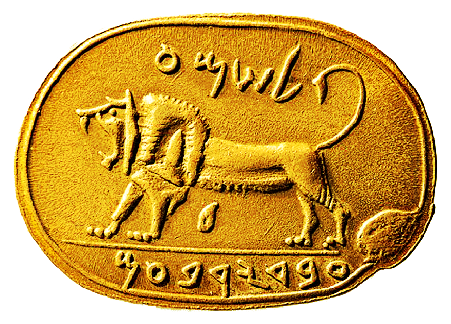There are a lot of mysteries in archaeology. An intriguing one comes from the Dead Sea Scrolls. A fragment from one of the scrolls demonstrates that parts of the Jewish community in the first century BC, had an expectation that the Messiah would be called:
“The Son of God.”
The Dead Sea Scrolls were found in caves in the dry and arid Jordan valley and date to approximately 300 BC to 100 AD. Next to the caves is an archaeological site, known as Qumran, where a community of people (Essenes) lived and copied the texts of the Bible and places them in earthen jars and hid them in caves to preserve them. These manuscripts were discovered in the early fifties and scholars then compared the texts to our modern Hebrew Bible. Most of the texts had not changed at all and illustrate that the Bible is still the same, even after 2000 years.

However, one of the scrolls has had interesting addition:
This scroll is known as the Aramaic Apocryphon of Daniel (Fragment nr. 4Q246). This scroll comes from the book of Daniel and it has an interesting term that was not added to the definitive version of the Hebrew. It is a small fragment found in Cave 4 and it is written in Aramaic, the spoken language of Judean Jews at the time. This fragment mentions a messianic figure that will arise and be called the “Son of God” or “Son of the Most High”. The text is very similar to the words of the angel Gabriel concerning the new born Jesus:
“He will be great, and will be called the Son of the Most High.”
(Luke 1:32.)
In the fragment the words “Son of God” and “Son of the Most High” were used as a title for a future divine savior and it uses the same verb that the angel uses in Luke: “He shall be called.”
Scholars have made different interpretations about this text. Some believe it is about a godly redeemer figure and directly related to Yeshua, others think it is prophesying about a regional leader. Some think it is a reference to a historic ruling figure and others claim it mentions an apocalyptic sovereign who will establish the reign of God on earth. Whatever interpretation one gives to this evidence, this fragment shows that the term “SON of GOD” was already associated with the prophecy of the Messiah in early Judaism before Yeshua.
It illustrates that there was a Jewish expectation in the first century BC, that the Messiah would be called:
“SON of GOD”.

For more information go to:
- Biblical Archaeology: Exploring The Dead Sea Scrolls (4Q246 Apocryphon of Daniel)
- 4Q246
- 4Q246
- The Background of the “Son of God” Text
| Awestruck & Archaeology | Awestruck & Dreams |
| Spiritual Warfare | |



